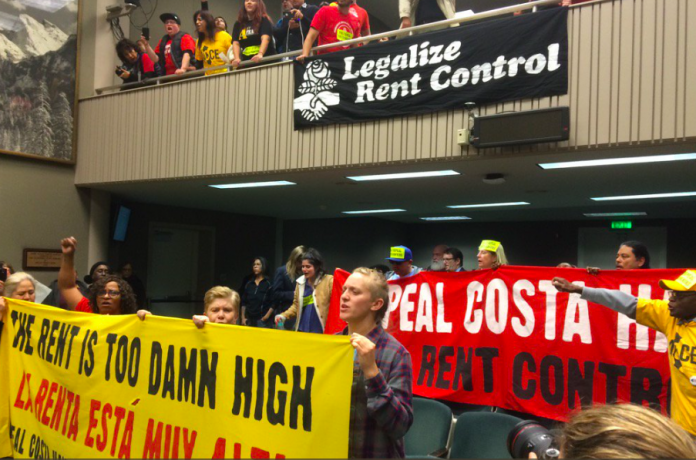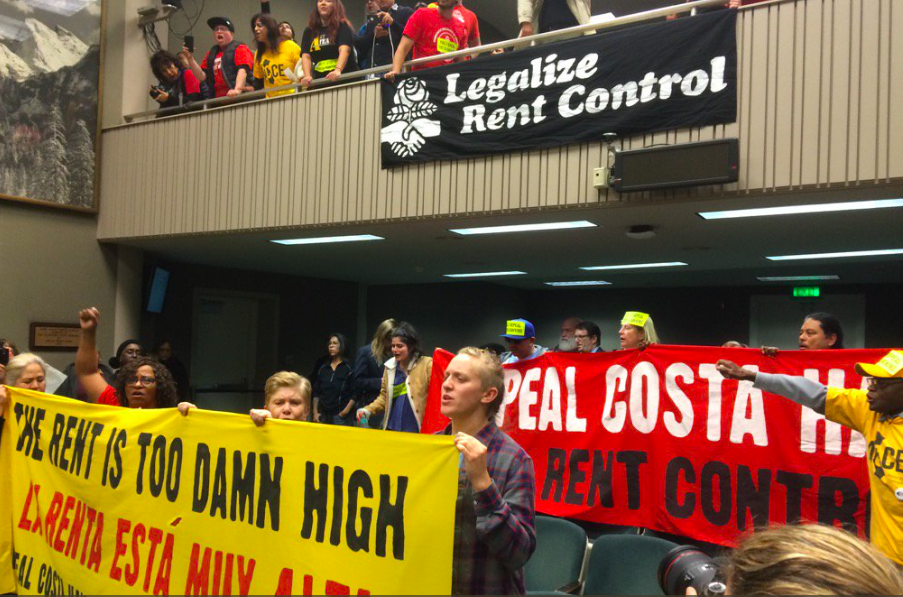
Of all the information that came out of the hearing on homelessness last week, when several supervisors said the Mayor’s Office and its Department of Homelessness isn’t doing the job, the most poignant, I think, was this:
The city is finding housing for about 50 homeless people a week. And every week, another 150 wind up on the streets – 100 of them San Franciscans who used to have a place to live.

That’s why, despite the mayor’s applause line that the city has taken 1,000 people off the streets since she became mayor, the crisis isn’t getting any better.
Think about it: 100 San Franciscans lose their housing every week. That’s 5,000 a year. Many find other housing eventually, but many don’t. And if we can’t solve that problem, we will never solve the problem of homelessness.
Let us make no mistake: Many of the people who lose their homes are victims of the tech boom that the late Mayor Ed Lee promoted, and that the current Mayor London Breed supported.
We know from the data that gentrification causes homelessness. We know that, in some neighborhoods (like the Mission) new luxury housing leads to gentrification.
And if this city continues to allow more office growth than housing, continues to attract businesses that hire workers who move here from somewhere else (instead of doing community-based economic development), it’s going to be hard to solve the problem.
The Chron, which has made a huge point of writing about the crisis but has done nothing to promote real solutions, says there are lots of “far out solutions,” which it rejects. Among them: Use the Cow Palace, which is often vacant and when it isn’t, hosts things like gun shows.
Help us save local journalism!
Every tax-deductible donation helps us grow to cover the issues that mean the most to our community. Become a 48 Hills Hero and support the only daily progressive news source in the Bay Area.
The Cow Palace also has a vast parking lot, right on the SF-Daly City line. Using that empty space as a place for people who live in cars and trucks to stay at night makes perfect sense. Why are these “far-out” ideas? The Chron has never suggested any better ones.
Which brings me to SB 50.
State Sen. Scott Wiener’s bill will be heard this month in the Senate Housing Committee, which he chairs. He has plenty of co-sponsors, including both SF Assembly members, Phil Ting and David Chiu.
SB 50 is a new, updated version of SB 827, which died in committee last year. It’s part of a large package of housing bills introduced this year – and almost all of them are about, in one way or another, deregulating the housing market in California.
Assemblymember Nancy Skinner, who are one point in her life was part of a left/progressive majority on the Berkeley City Council that supported strict rent control – that is, regulation of housing – has a bill that would suspend local rules for ten years.
The measures would, in essence, force cities to approve more dense – market-rate – development.
They include no significant new money for affordable housing.
The flurry of bills is related to the CASA compact, a deal put together by regional planners that calls for
-
Increasing housing production at all levels of affordability
-
Preserving existing affordable housing
-
Protecting vulnerable households from housing instability and displacement.
The idea was to push the Legislature to produce a series of bills that would address all of those issues – including protections for existing vulnerable communities.
Guess what: The bills that would allow developers to build more, with fewer restrictions, have all been introduced. There are no bills to protect existing affordable housing or protect vulnerable tenants from displacement.
This was supposed to be a package – a “grand bargain” — but the pieces that would regulate housing and protect vulnerable communities have vanished. Why are we not surprised?
The Wiener bill seeks to upzone cities and parts of cities that have mostly single-family housing. He argues that if we can just “legalize apartment buildings,” housing prices will come down.
There is absolutely zero evidence that this is the case.
In fact, the evidence shows that allowing market-rate developers to build more dense housing drives up land values and leads to displacement.
And what kind of crap is this “increasing housing production at all levels of affordability” when there is no state money for affordable housing – and nothing that gets built under these bills will be anything except high-end apartments and condos?
Remember: If developers can’t get enough return on their investment to build, they won’t build. The tech boom in San Francisco has driven up land values so high that the only kind of housing that “pencils out” is housing for rich people. And upzoning just makes the situation worse. It also makes land more expensive for affordable-housing developers.
The Wiener bill doesn’t change that basic fact of economics.
He and the other Democrats who run the entire state could easily have introduced the “grand bargain” as a package: Developers get to build more housing, more quickly, and at the same time, cities get to regulate existing rents and prevent evictions. There’s no deal unless both parts of the package pass.
But no. And the CASA folks have not spoken up to say: We are opposing SB 50 until it is connected to Ellis Act and Coast-Hawkins repeal. And Nancy Skinner and David Chiu and Phil Ting are going along with this farce.
I am not against density. I grew up in a suburb, with single-family homes and no way to get around without a car, and I hated it. As soon as I could, I moved to a city – a dense city.
San Francisco is the third densest urban area in the country; I love it here. I can’t speak for all progressives in the city, but most housing activists i know aren’t against density, either. If we could come up with a plan to build, say, 50,000 new units of social housing – nonprofit affordable housing, limited-equity co-ops, land-trust housing, all types of housing affordable to working-class people and none of it in the private sector – and the rich people and corporations in this city would pay their fair share to provide the very expensive public transit, schools, and other infrastructure we would need to support that increased population, I think a lot of progressives would line up to testify in favor.
But this isn’t about density. It’s about a ridiculous argument that the private sector, freed from those pesky regulations, will somehow work in the public interest.
We have tried that, in the US, many times since the 1980s. We are trying it again, under Trump. It never works. It never will.
Meanwhile, in a housing market that is deregulated by the Ellis Act and Costa-Hawkins, more people become homeless every week than the city, despite massive spending, can house.
What happened to the “grand bargain?”
Do I have to ask?

